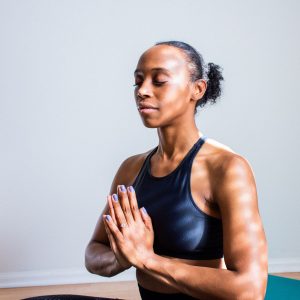Is It Important To Time Your Workouts?
 It doesn’t matter what you do, everything has a sweet spot. You know when it’s just the right amount. Goldilocks knew it when she sat on the chair, tasted the porridge and slept in the bed. There’s also a sweet spot when it comes to how long and how often you workout. It’s one reason we recommend that you time your workouts. Timing can tell you a lot.
It doesn’t matter what you do, everything has a sweet spot. You know when it’s just the right amount. Goldilocks knew it when she sat on the chair, tasted the porridge and slept in the bed. There’s also a sweet spot when it comes to how long and how often you workout. It’s one reason we recommend that you time your workouts. Timing can tell you a lot.
If you’re running a mile, it can tell you how much progress you’ve made.
Timing your workout can help you understand how much exercise you’re actually getting. If you go to the gym and take long breaks between exercises, stopping and talking to others, that hour at the gym is deceptive, since it’s not how long you really exercised, but how much time you spent at the gym. If you aren’t making progress, but are “putting in the time,” start recording actual minutes exercised instead.
Spending long hours actually working out can also be a problem.
No matter how great exercise is for your body, you can get too much. Your body needs to recover and heal, especially after a tough workout. It’s important to time strength training, making sure you have between one or two days in between to allow the body to repair the micro tears in the muscles that cause them to get stronger. Timing your next tough workout after a particularly grueling session is important. Even though exercise burns off stress hormones, tough workouts create stress and can affect your immune system for as long as 72 hours. Time the tough sessions so you get rest between them.
Timing a workout can include the time of day you exercise.
There’s a lot of debate on whether it’s better to workout in the morning, at lunch or after work. Unfortunately, there’s no clear answer. Your hormone levels may be higher in the morning, so you’ll burn more fat, while getting your day started right and getting your exercise done early. A midday workout ensures you have more energy than you did in the morning and can boost your energy level throughout the afternoon. Working out at the end of your work day can burn off the hormones of stress and help you to wind down, while be invigorating as well, as long as you don’t do it too late. The answer is “You do you.” Do what fits your needs, but do it consistently and at the same time each day.
- While the amount of time you spend is important, so is intensity and style. A HIIT—high intensity interval training—workout is shorter, but provides the same benefits as a longer steady state workout. The more intense the workout, the shorter it should be.
- If you have a heart monitor or blood pressure machine that provides heart rate, check your resting heart rate. If it suddenly and consistently increases in a resting state, you’ve stressed your body and may need to cut back on the workout.
- If you’re timing your workout, only count the amount of time you’re exercising. Track each exercise and tally the number of minutes. You’ll be surprised at how little time you spend actually exercising.
- If you workout too much, you could be sabotaging your efforts. Overworking your body can actually lead to loss of muscle mass and cause you to be tired.
For more information, contact us today at Rising Fitness Gym



 I firmly believe that Rising Fitness in Houston, Texas, provides the best program to get clients fit faster. However, once people start here, they often want to live a fitness lifestyle that goes beyond the walls of the gym. That includes having fun with the family hiking, biking and even running. We help clients get into shape to run and guide them on getting started. Each new physical undertaking requires knowledge to stay safe and injury free.
I firmly believe that Rising Fitness in Houston, Texas, provides the best program to get clients fit faster. However, once people start here, they often want to live a fitness lifestyle that goes beyond the walls of the gym. That includes having fun with the family hiking, biking and even running. We help clients get into shape to run and guide them on getting started. Each new physical undertaking requires knowledge to stay safe and injury free.
 Recent studies have shown that some people benefit from having some caffeine before a workout, but how much caffeine should they take and in what form? Caffeine occurs naturally in a lot of forms that are quite popular. That cup of coffee, tea or cola soft drink contain caffeine, so does that bar of chocolate. Caffeine acts as a stimulant in the body, which is one reason people use coffee to help stay awake. It does have some drawbacks, including the potential to increase both blood pressure and heart rate.
Recent studies have shown that some people benefit from having some caffeine before a workout, but how much caffeine should they take and in what form? Caffeine occurs naturally in a lot of forms that are quite popular. That cup of coffee, tea or cola soft drink contain caffeine, so does that bar of chocolate. Caffeine acts as a stimulant in the body, which is one reason people use coffee to help stay awake. It does have some drawbacks, including the potential to increase both blood pressure and heart rate.
 If you want a longer life, keep your body healthier. Your heart plays an important role in your overall health and ability to function. Making small changes for a healthier heart also improves other areas of your body and allows you to be more active, which improves your heart health even more. It’s all connected and continuous. It’s never too late to get started, but the older you are, the slower the changes will occur. It’s all about living healthy every day.
If you want a longer life, keep your body healthier. Your heart plays an important role in your overall health and ability to function. Making small changes for a healthier heart also improves other areas of your body and allows you to be more active, which improves your heart health even more. It’s all connected and continuous. It’s never too late to get started, but the older you are, the slower the changes will occur. It’s all about living healthy every day.
 We provide nutritional guidance at Rising Fitness in Houston, TX. When people see fats in their nutritional plan, they are often surprised. In fact, many have been consuming low fat or no fat foods, which actually sabotages their weight loss. There are three main categories for fat, saturated, unsaturated and trans fats. Unsaturated fat is liquid at room temperature, while saturated fat is solid. Saturated and unsaturated fat are easily found in nature, but most trans fats are man-made with just a small amount naturally occurring.
We provide nutritional guidance at Rising Fitness in Houston, TX. When people see fats in their nutritional plan, they are often surprised. In fact, many have been consuming low fat or no fat foods, which actually sabotages their weight loss. There are three main categories for fat, saturated, unsaturated and trans fats. Unsaturated fat is liquid at room temperature, while saturated fat is solid. Saturated and unsaturated fat are easily found in nature, but most trans fats are man-made with just a small amount naturally occurring.
 As a society, we’re addicted to sugar. It seems like extra sugar is added to all processed foods. Approximately 80% of all food on the grocery shelf contains it. As a result, sugar related illnesses like type2 diabetes, heart disease and fatty liver disease have increased. Obesity has become the leading cause of preventable deaths. To combat that, artificial sweeteners have flooded the market and become almost as prevalent in diets as sugar. There is a problem. We may be replacing one health enemy for a new one. Could sugar actually be healthier?
As a society, we’re addicted to sugar. It seems like extra sugar is added to all processed foods. Approximately 80% of all food on the grocery shelf contains it. As a result, sugar related illnesses like type2 diabetes, heart disease and fatty liver disease have increased. Obesity has become the leading cause of preventable deaths. To combat that, artificial sweeteners have flooded the market and become almost as prevalent in diets as sugar. There is a problem. We may be replacing one health enemy for a new one. Could sugar actually be healthier?
 Sometimes when you’re done with your daily responsibilities, you may feel totally stressed out and just want to watch TV or videos. While it might feel good to engulf yourself in the story, it won’t help you relieve the stress you feel. What should you do instead to relieve stress? The answer is simple, just workout. Try it sometime and you’ll see. It doesn’t have to be a traditional workout, just running up and down stairs or going for a brisk walk can help lower stress levels and make you feel great.
Sometimes when you’re done with your daily responsibilities, you may feel totally stressed out and just want to watch TV or videos. While it might feel good to engulf yourself in the story, it won’t help you relieve the stress you feel. What should you do instead to relieve stress? The answer is simple, just workout. Try it sometime and you’ll see. It doesn’t have to be a traditional workout, just running up and down stairs or going for a brisk walk can help lower stress levels and make you feel great.
 While it’s normal for children to run like wild animals when playing and be active, it’s not necessarily how it is today. We are a nation of screens and video games and kids are caught up in the technology. Today, we have to take an active role to ensure that our kids get the activity they need. We have to do the same as adults, since manual labor has been replaced by modern machinery. How do you teach kids to be healthy? It starts by being a good role model.
While it’s normal for children to run like wild animals when playing and be active, it’s not necessarily how it is today. We are a nation of screens and video games and kids are caught up in the technology. Today, we have to take an active role to ensure that our kids get the activity they need. We have to do the same as adults, since manual labor has been replaced by modern machinery. How do you teach kids to be healthy? It starts by being a good role model.
 The minute you enter Rising Fitness in Houston, TX, you’ll realize that we’re different. We take a holistic approach to fitness that’s based on each person’s individual needs. If you’re already eating healthy, but have a difficult time with stress and don’t get nearly enough exercise, there’s no reason to focus on your diet. We talk to clients to find the best ways to help them. While the person with a healthy diet may get a few tips, we’ll focus more on the problems he or she faces, stress and a sedentary lifestyle.
The minute you enter Rising Fitness in Houston, TX, you’ll realize that we’re different. We take a holistic approach to fitness that’s based on each person’s individual needs. If you’re already eating healthy, but have a difficult time with stress and don’t get nearly enough exercise, there’s no reason to focus on your diet. We talk to clients to find the best ways to help them. While the person with a healthy diet may get a few tips, we’ll focus more on the problems he or she faces, stress and a sedentary lifestyle.
 If you’ve put your winter clothing to the back of your closet and started focusing on the more revealing summer attire, it’s one step toward getting ready for summer. If those clothes don’t quite fit right or show every bulge, you need to make some changes in your life so you can have that summer fun in the sun and enjoy every minute at the beach or pool. Getting ready for summer isn’t just about how you look, it’s also about how you feel and boosting your energy level.
If you’ve put your winter clothing to the back of your closet and started focusing on the more revealing summer attire, it’s one step toward getting ready for summer. If those clothes don’t quite fit right or show every bulge, you need to make some changes in your life so you can have that summer fun in the sun and enjoy every minute at the beach or pool. Getting ready for summer isn’t just about how you look, it’s also about how you feel and boosting your energy level.